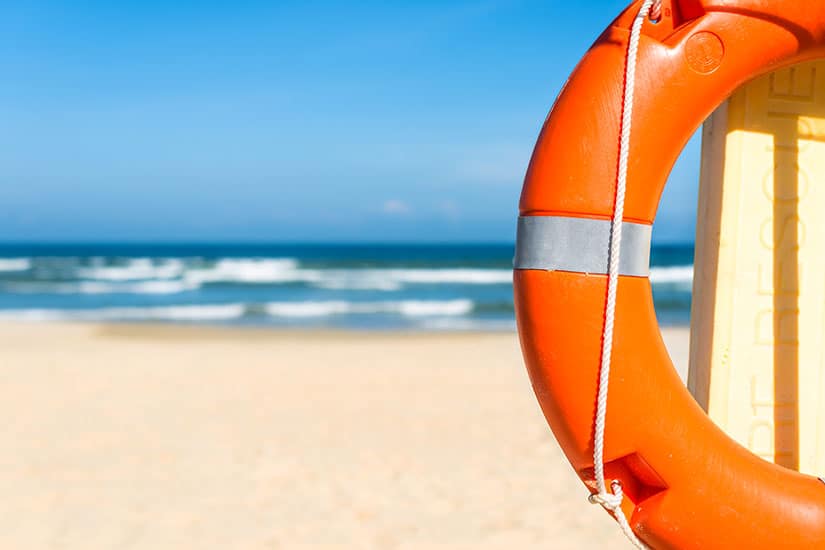Here are a few easy tips that can help keep your day at the beach safe from dangers like being swept up in a rip current or suffering a spinal cord injury.

A trip to the beach should be a fun outing for folks who like to cool down and relax by the ocean, but beware, there are potential dangers lurking in the surf. Rip currents can be deadly, especially if you’re not prepared for what to do if you get swept up in one. On a single day earlier this summer, a whopping 75 people were saved by lifeguards at Virginia Beach!
Knowing what to do if you encounter a rip current can mean the difference between your safety and potentially suffering serious injury or even death by drowning. If you ever find yourself caught in a rip current, do your best to remain calm, and yell for help if you can. It’s important not to exhaust yourself, so that you’re able to stay afloat while waiting for help. If help isn’t immediately available, you can swim out of a rip current if you know the right way to do it. Your instinct will probably be telling you to swim back toward the shore, but if you try to swim against the rip current that is taking you out to sea you’ll quickly become exhausted and risk drowning. Instead, swim parallel to the shore until you are out of the rip, and then once you can feel that you’ve escaped the strong current, that’s when you should swim back toward the beach.
Serious spinal injuries are another danger that lifeguards report dealing with at the beach. A spinal injury can happen when someone dives into water that is shallower than they thought it was, and they hit the ocean bottom head-first with a lot of force. It can also happen when powerful waves or currents sweep your legs out from under you. If this happens and a swimmer crashes their head into the ocean bottom, the consequences can be terrible — a debilitating spinal cord injury or traumatic brain injury. It’s never a good idea to dive into water when you can’t see the bottom. If the water is murky, walk in, don’t dive. You never know when the water might be much shallower than you think!
Lastly, always be aware of your surroundings at the beach, look out for signs warning of dangerous currents, and pay attention to waves and other beachgoers around you.
All of us here at Burnett and Williams hope that any beach adventures you and your loved ones go on this summer are full of sunshine and laughter, and no injuries!